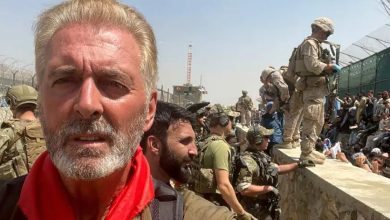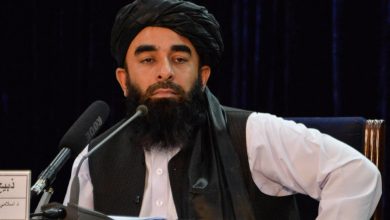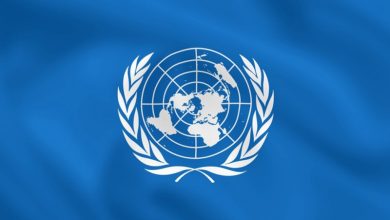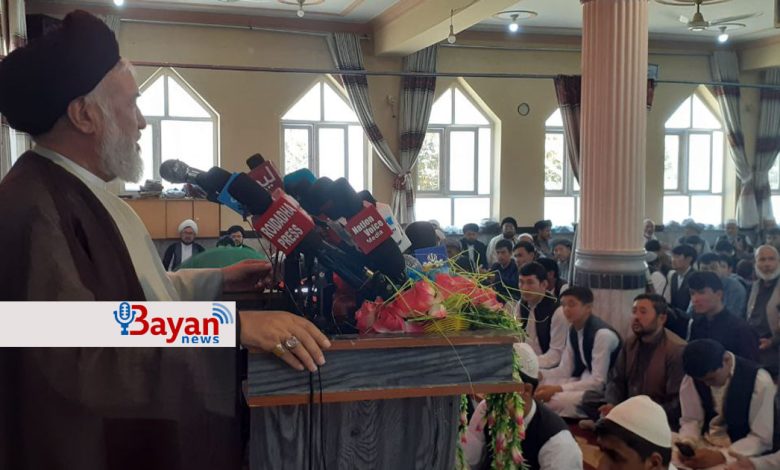
The Shia Ulema Council of Afghanistan to the Taliban: We Will Not Retreat from Our Legitimate Demands
Bayan News – Members of the Shia Ulema Council of Afghanistan have addressed the Taliban, stating that they will not retreat even one step from the legitimate demands and rights of the Shia community, as these demands are reasonable and in accordance with Islamic Sharia.
On Sunday (22nd September), the Shia Ulema Council of Afghanistan held a ceremony to commemorate the birth of the Prophet of Islam and to celebrate Unity and Brotherhood Week in Afghanistan.
Sayed Hussain Alemi Balkhi, the head of the Secretariat of the Shia Ulema Council and the leader of the Lovers of Ahl al-Bayt Assembly of Afghanistan, discussed the conduct and ethics of the Prophet of Islam in his speech, emphasizing that Muslims should learn from the Prophet’s life to strengthen unity.
Alami Belkhi added that, in the current situation, there are people who lie in wait, trying to find reasons to issue fatwas of excommunication (takfir) against certain groups of Muslims and justify their killing.
He stated that the Prophet Muhammad only recognized the utterance of the shahada (testimony of faith) as the basis for protecting lives. He questioned: “I don’t understand where these takfiris come from and how they dare to issue fatwas of excommunication against the clear words of the Prophet. Those who issue such fatwas against believers of the shahada must realize that they are opposing God’s direct command and revelation.”
In his speech, the head of the Shia Ulema Council emphasized: “Today, we see various platforms emerging and receiving support, with the aim of inciting Muslims to excommunicate each other. Some media outlets falsely claim to defend the Shia faith while promoting hatred against Sunnis, and others do the opposite. Both are funded and supported from the same source.”
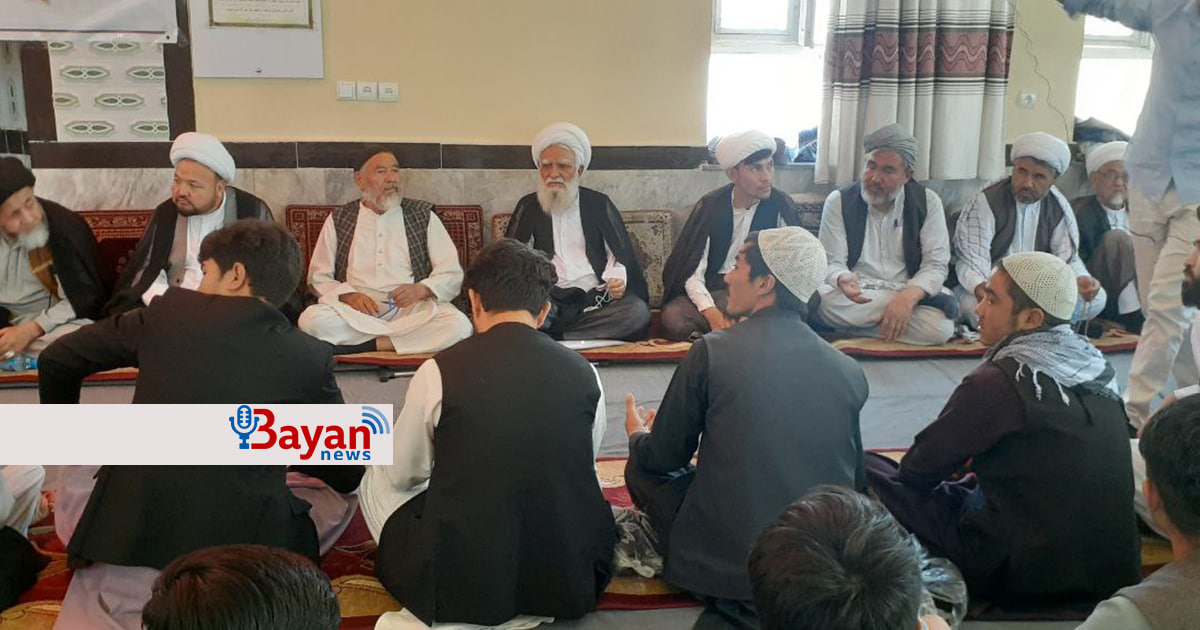
Shia Engagement Must Yield Results
Alemi Balkhi also described Afghan Shias as the world’s oldest Shia community, explaining that they embraced Shia Islam upon receiving a message from Imam Ali himself. He added that Afghan Shias, like Imam Ali, show patience for the sake of the Islamic community’s welfare, and when the new government (the Taliban) came into power, Shia leaders chose dialogue over confrontation.
He further said: “Today, we see countries opposing Afghanistan, weakening its people, and imposing economic sanctions on a nation just emerging from 45 years of war. Naturally, the country needs the support of all its people.”
Balkhi stressed that everyone must work together for the greater good. While Afghan Shia figures, both within and outside the country, may have their criticisms, they all reject violence and war, demonstrating the collective wisdom of Afghan Shias. Therefore, they remain committed to dialogue, understanding, and reconciliation.
In discussing the demands of the Shia community, he said: “Our pursuit of dialogue does not mean that Shias in Afghanistan support violence or seek instability or chaos. We demand our religious, cultural, economic, and political rights within this system (the Taliban), and we have not retreated from these demands since day one. Our demands are reasonable, logical, and in line with Islamic Sharia.”
He emphasized: “We must strive for productive engagement with the Islamic Emirate (the Taliban). Engagement must yield results; if we continuously call for dialogue without achieving anything, these efforts will be in vain. We must take practical steps to ensure that engagement brings real outcomes.”
Alemi Balkhi clearly called on the Taliban government to pay attention to the Shia community’s demands, as meeting these demands would strengthen the current system and promote unity and brotherhood in Afghanistan.
Meanwhile, Nematullah Ghafari, deputy head of the Communications Commission of the Shia Ulema Council of Afghanistan, delivered a speech at the ceremony, discussing the virtues of the Prophet and highlighting his distinction from other prophets.
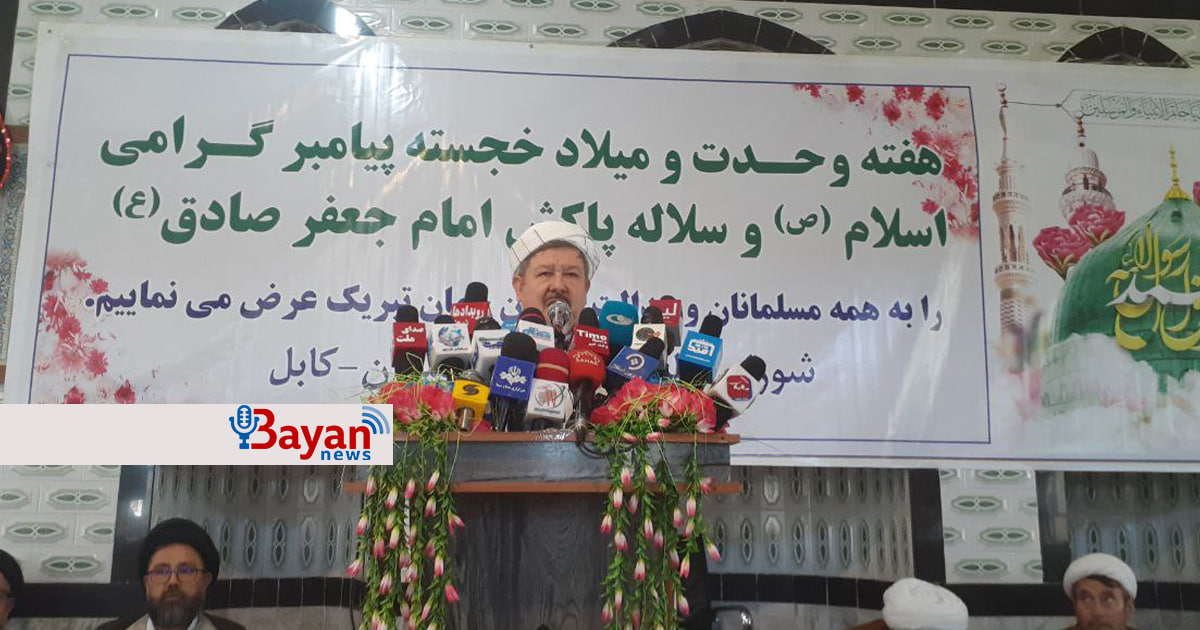
Ghafari stated that one of the main differences between the Prophet of Islam and other prophets is that he brought the most complete religion, and there is no need for another prophet after him; this is one of the greatest virtues of the Prophet.
He criticized the imposition of certain beliefs on Shias, saying: “The enemies of Islam have made false accusations about the Shia community concerning the Prophet. Unfortunately, some Muslims naively believe these lies, which were fabricated by the enemies, and promote them as truth.”
He called on all Islamic scholars, researchers, and intellectuals to learn from the Prophet’s good character and said: “If you want Islam to regain its former glory and honor, you must follow the Prophet’s example of tolerance and kindness. By doing so, people will be attracted to Islam, and its greatness will be restored.”
At the same event, Hujjat al-Islam Rezvani Bamiani, head of the Cultural Commission of the Shia Ulema Council of Afghanistan, reflected on the mission and greatness of the Prophet and Imam Sadiq as the Prophet’s true successor.
Rezvani Bamiani posed the question: “Why did the Prophet come, and what did Imam Sadiq do?” He explained that from the verses of the Quran and Hadiths, it is clear that the Prophet came to make humanity worthy of inhabiting a paradise both in this world and the hereafter. The notion that the Prophet’s mission was only to improve the afterlife of people is a misconception.
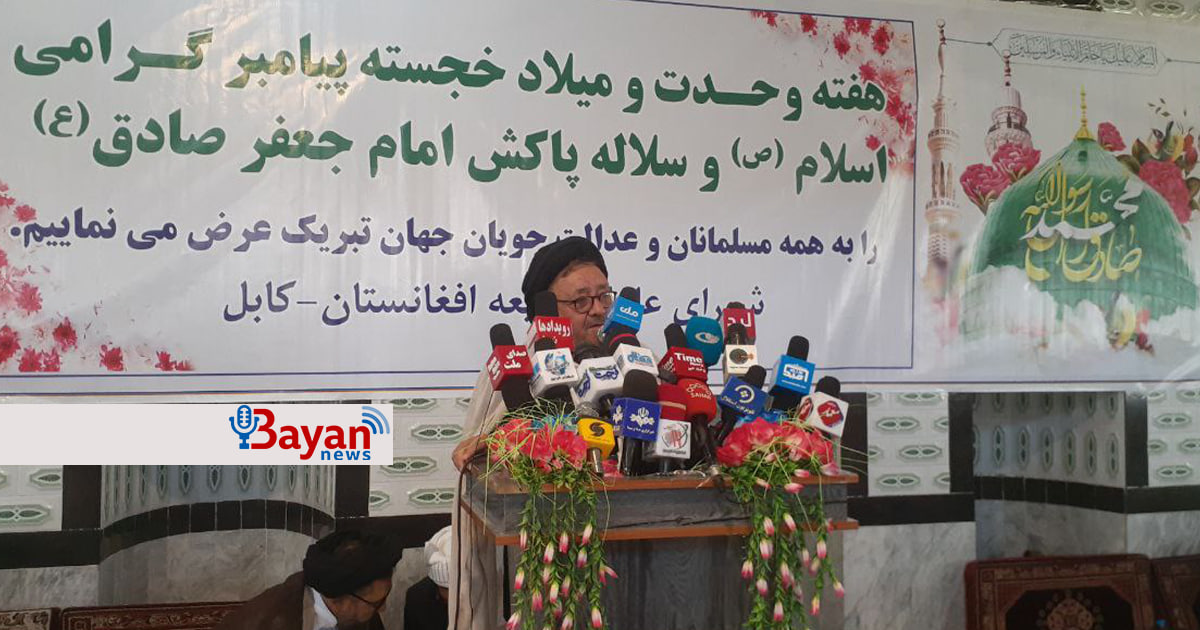
Bamiani stressed: “This world will become paradise when justice prevails, when there is no discrimination or superiority, and when the rights of all citizens and Muslims are equal at both the national and international levels. As long as injustice and discrimination prevail in a society or country, it cannot be considered a healthy or truly Islamic society.”
He concluded that the celebration of the birth of the Prophet and Imam Sadiq should serve as a reminder to follow their examples in building a true Islamic society.
Taliban Prevent Transfer of Shia Religious Books by Karbala Pilgrims at Islam Qala Border



